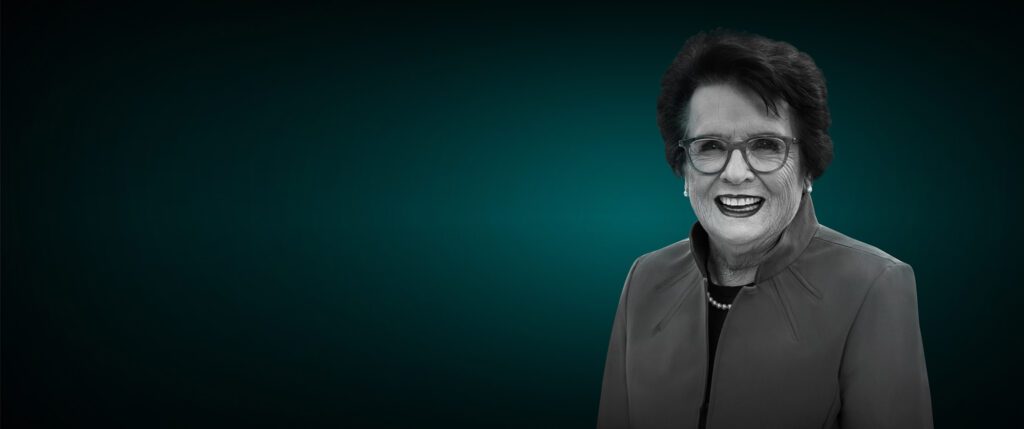Pioneers in gender-lens investing and ESG-investing, the International Finance Corporation (IFC) considers strategies for gender, diversity and inclusion as material lending and investment criteria. Using the EDGE solution allows the IFC to gain a snap-shot overview of their clients’ gender equality status, to clearly convey the value of gender equality and to embed effective metrics for bringing about transformation. We speak with Amy Luinstra – Regional Lead, East Asia Pacific, Gender and Economic Inclusion Group – about how the IFC works with EDGE to support its lending and investment activities.
Why do you consider gender equality, diversity and inclusion in the workplace as material criteria in your investing and financing activities?
“The short answer is that companies with better gender balance make more money and face fewer ESG risks. But the broader answer is that our work on gender is motivated by both a sustainable development case and a business case.
As part of the World Bank Group, we have twin goals to eliminate extreme poverty and boost shared prosperity. And neither of these are possible without significant progress on gender equality, so it’s part of our mission. Fully including women in the economy is a development accelerator. World Bank research from March 2020 found closing lifetime earnings gaps between women and men could yield a gender dividend of USD 172 trillion.
From an IFC perspective, we’re financing companies and therefore the business case is also important. We have consistently found that companies with better gender balance perform better. Recent research we conducted with publicly listed companies in East Asia found that those with gender-balanced boards earned two percentage points higher returns than those with all-male boards. Another study on private equity and venture capital in emerging markets in 2019 found that gender balance in senior investment teams led to 10% to 20% higher returns compared with funds that have a majority of male or female leaders. Clearly, the payoff from gender diversity is real. That’s why we work with the private sector to assess gender diversity, conduct research, and then address the gaps.”
What will lead to large scale adoption of gender balance, diversity and inclusion in the workplace and on boards as key scoring and reporting indicators?
“I think that understanding the business case I just referred to, and acting on it, is crucial. We observe that companies displaying strong leadership for gender balance issues understand the business benefits. But there are also social and reputational payoffs.
Reporting on consistent gender metrics is important. One example is stock exchanges that have implemented ‘comply with gender targets or explain’ provisions in their listing guidelines. This can activate a competitive spirit. This extends beyond stock exchanges to reporting requirements set by governments, and from gender balance targets to wider transparency related to gender-smart policies and practices. Consistent metrics, including those EDGE uses in its certification, are key because they help set the benchmark and can ignite a competitive spirit which generally tends to accelerate progress.
In addition, awards programs or certifications, like Employer of Choice awards and EDGE Certification, can be strong motivators. They are particularly useful when they’re backed up by verifiable objective criteria. In most countries that we work in, there is competition to attract and retain the best talent. Being verified that you’re an employer of choice or certified is a big selling point in tight labor markets.”
How is EDGE Certification specifically contributing to advancing the ESG agenda with your portfolio companies?
“EDGE Certification is an important part of the toolkit we offer to companies. Many companies, across diverse sectors, find certifications valuable and the market responds to them. The IFC often supports certifications that align to our values, objectives, sustainability framework and performance standards – and we ask our portfolio companies to attain these where they are relevant.
EDGE Certification is one we encourage among our portfolio companies, and it can be supplemented by IFC gender advisory services. If we review the portfolio of companies that the IFC has taken through EDGE Certification, we see it represents a range of sectors and geographies, which tells me EDGE is a broadly applicable solution.”
Which characteristics of the EDGE Certification solution do you feel are particularly valuable?
“I think what the IFC finds valuable might vary from what the companies attaining certification find valuable.
One of the things I love about the EDGE Certification and its assessment process is the mix of data sources that generate very helpful data sets, either for benchmarking or data visualization. One specific example is the career transitions chart that depicts gender disaggregated data from the previous year’s exits and entries, recruitments and promotions. It shows, in one picture, where a company is positioned currently and where it needs to focus to accelerate progress.
An independently verified certification sends a clear signal to the market that there’s a business case for gender equality. One example is a construction company in the Pacific that finds its EDGE Certification valuable when it comes to winning public tenders. It specializes in social infrastructure, schools and health clinics, and the government responds positively to the EDGE Certification verification of their commitment to gender equality. Another example is the appeal EDGE Certification offers potential employees in a tight labor market. Therefore, the business case, or the specific advantage of EDGE, varies by market and by sector. Still, EDGE Certification also has characteristics that make it appealing to a broad range of companies, economies and geographies.”
How does implementing the EDGE solution with clients dovetail into the wider gender advisory work being done by the IFC?
“We find EDGE Certification is an excellent entry point for us to start working with companies because it offers a comprehensive snapshot of where the company is positioned on gender equality. An assessment for EDGE Certification helps us identify a client´s priorities on gender equality, then we can help address these priorities.
For example, the EDGE employee survey can reveal underlying issues within the corporate culture, such as sexual harassment or bullying behaviour directed toward women. We can then begin working to create respectful workplaces, which includes not only work on an anti-bullying and anti-sexual harassment policy but also awareness-raising, training and a wider effort to embed a more respectful workplace culture. In summary: EDGE is a good entry point for us to help clients through a range of interventions that can help boost their gender-balance performance.”
Do you offer the EDGE solution to clients across a range of industries and geographies? And is there a particular example that stands out?
“Yes. We use EDGE with client companies across the globe and in sectors ranging from construction to tourism, food processing, banking and the garment industry. Our five most recently EDGE-certified clients are from diverse countries and sectors, from Papua New Guinea to Brazil, Vietnam, Sri Lanka, and Pakistan. No matter the location or industry, we use the EDGE assessment to see where the bottlenecks are and then work with companies on addressing those bottlenecks.
One example that stands out is the EDGE Certification for a garment industry company in Vietnam. The EDGE Assessment allowed us to identify issues in the way men and women were being promoted. While there was more-or-less gender balance across different levels, there was an imbalance in promotions, so equality in the career pathway was not working.
We guided the client through the process of identifying desired key skills and career pathways, helping them to ensure equal opportunities for women – who usually joined as sewing machine operators – to make clear how they could advance. We also helped the client in effectively disseminating information to staff about skill-development opportunities to move into senior management-level positions. It’s important to note that this is a company whose overall EDGE results were positive. EDGE Certification strengthens the case for this client to become an employer of choice, and it also allows us to work with a client to further improve.”
Yes, we are very excited about the potential of EDGEplus to help us address intersectionality issues, which are always present even if clients are not demanding to address them yet. There has been strong interest in markets where we’ve engaged on topics related to disability inclusion as well as sexual orientation and gender identity. But I think, right now, for most markets intersectional equity is something we as the IFC are often raising with the clients and not something they are demanding. But this will change, and we’re delighted to have the opportunity to work with the EDGEplus tools to start to put analytical rigor behind this analysis.
Are you working with companies on intersectional equity?
“Yes, we are very excited about the potential of EDGEplus to help us address intersectionality issues, which are always present even if clients are not demanding to address them yet. There has been strong interest in markets where we’ve engaged on topics related to disability inclusion as well as sexual orientation and gender identity. But I think, right now, for most markets intersectional equity is something we as the IFC are often raising with the clients and not something they are demanding. But this will change, and we’re delighted to have the opportunity to work with the EDGEplus tools to start to put analytical rigor behind this analysis.”
The data we collect over time with our clients show both operational and reputational improvements as a result of the work we do. It’s important that the IFC itself is EDGE Certified. We’ve been working with the tool for six years and this adds to our credibility in the market. We know first-hand that the metrics really do motivate senior management. And, as an organization ourselves, we’ve made a lot of progress in the last six years. All of this helps our reputation in working with clients—if we had a dramatic gender imbalance in our leadership team or workforce, then we would not be able to credibly deliver these services.
The second point I wanted to make is about COVID-19, because its impact on gender balance in the workforce is pronounced and negative. And this is true for every country and economy in which it’s been studied. In some markets unemployment rates are now more than double for women what they are for men. A study by McKinsey Global Institute found that women are losing jobs 1.8 times as quickly as men. Even companies we’ve worked with to ensure the COVID impacts are not gender related are still seeing gender imbalance. We just see women dropping out of the workforce. And this makes standardized solutions such as EDGE important to make organizations aware of the inequities from the COVID impact.
Are there any other points you would like to make?
“The data we collect over time with our clients show both operational and reputational improvements as a result of the work we do. It’s important that the IFC itself is EDGE Certified. We’ve been working with the tool for six years and this adds to our credibility in the market. We know first-hand that the metrics really do motivate senior management. And, as an organization ourselves, we’ve made a lot of progress in the last six years. All of this helps our reputation in working with clients—if we had a dramatic gender imbalance in our leadership team or workforce, then we would not be able to credibly deliver these services.
The second point I wanted to make is about COVID-19, because its impact on gender balance in the workforce is pronounced and negative. And this is true for every country and economy in which it’s been studied. In some markets unemployment rates are now more than double for women what they are for men. A study by McKinsey Global Institute found that women are losing jobs 1.8 times as quickly as men. Even companies we’ve worked with to ensure the COVID impacts are not gender related are still seeing gender imbalance. We just see women dropping out of the workforce. And this makes standardized solutions such as EDGE important to make organizations aware of the inequities from the COVID impact.”





